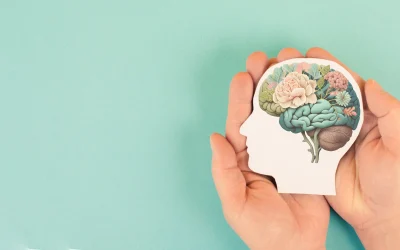Redefining Coping Skills for Anxiety and Depression
Do coping skills in therapy really work? When therapists teach coping skills and they do not work the way you want them to, it can feel discouraging. Fortunately, redefining one’s coping skills for anxiety and depression can make a meaningful difference in how one journeys through circumstances in life. It is important to recognize that coping mechanisms take time, space, and intentionality for them to flourish into something that can be truly beneficial.
Symptoms of anxiety can involve restlessness, irritability, hypervigilance, rapid heart rate, excessive worry, and difficulty concentrating. Symptoms of depression can involve fatigue, restlessness, irritability, loss of interest in activities, apathy, persistent sadness, and hopelessness. If you resonate with some of these symptoms, redefining your coping skills can make an impactful difference on how to cope with these symptoms and related stressors.
Here are four tried and true ways to redefine your coping skills and get them to work for you:
1) Reframe Your Perspective
Gathering a deeper understanding on what coping skills can do also means understanding what coping skills cannot do. In reality, coping skills cannot change a situation. Coping skills can, however, help change your mindset towards a situation. This can make all the difference! Changing your mindset can empower you with new ways to face stressors that initially seemed so discouraging. Using coping skills are not meant for you to avoid a stressor permanently, but instead used as a way to equip you with the tools to bravely cope with symptoms and related stressors you may be experiencing.
2) Evaluate What Worsens Your Symptoms
When your symptoms of anxiety and/or depression increase, it can be helpful to notice what caused the emotional and physiological changes in the first place. There can be a wide range of causes that are unique for each person. Have you ever watched television for a few hours and felt more anxious or depressed? Have you ever experienced the “jitters” or a slight increase of anxiety after drinking coffee? These can actually worsen your symptoms. Other factors that can worsen your symptoms include sleep issues, physical health, food intake, and relationship stressors. Evaluating what worsens your symptoms and stressors can equip you to intervene more quickly.
3) Choose The Most Effective Coping Skills For You
Not every coping skill works the same way for everybody. It is important to choose a coping skill that can be truly effective for you. Certain coping skills can be more effective in high levels of distress. For instance, anxiety is an emotion identified through the mind and body’s reaction to distressing or unfamiliar situations. It is important to note that anxiety can be a normal response, but a persistent state of anxiety can involve one who feels they cannot control the worry for most days and feels disproportionately threatened from everyday situations. This can look like someone who has worst-case scenario thoughts, such as thinking, “What if I can’t find a parking spot? What if my friends don’t actually like me? What will happen if I fail this class?” Coping skills that decrease that disproportionate threat response and address anxiety’s mind and body reactions can be helpful. This can include exercising, taking a cold shower, deep breathing, and challenging those anxious or worst-case-scenario thoughts. Try them each a few times to discover what works for you! Our therapists will partner with you to identify the best coping skills to reduce your anxiety.
4) Practice Your Coping Skills When You Are More Calm
It can be common for one to only use coping skills when experiencing distress. However, starting there would be like playing piano for the first time at a Carnegie Hall concert or learning to ride a bike on a motocross track. If coping during stress feels like a gargantuan effort to you, try practicing your coping skills when you are in a more calm state. Using your coping skills in this way can be more effective when it is time to use those same skills during a stressful situation.
Redefining your coping skills can work effectively when applied consistently in your personal life, discussed and evaluated in the therapeutic setting, and in correspondence with processing your underlying emotions in a healthy manner. At Trauma Therapy CA, we look beyond the basic coping skill. Our experienced therapists will partner with you so you can individually reap the most benefits that coping skills have to offer. We are committed to helping fine-tune your skills as you move toward your best life.



